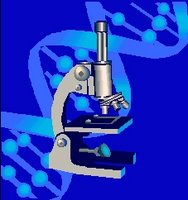Gene Therapy Clinical Trials: A Snapshot

Worldwide there are over a 1000 clinical trials for gene therapy. Gene therapy is a technique for correcting defective genes responsible for disease (see here).
I came across this site a few days ago which gives us a fascinating snapshot of the diversity of the potential applications of human gene therapy. It provides information on 421 clinical trials that are currently recruiting patients. The search for "gene therapy" trials also contains some of those recruiting for genetic tests (like this one, this one and this one).
Here I provide a brief snapshot of these fascinating developments with a sample of 3 of the therapy trials currently recruiting.
(1) The National Institute of Arthritis and Musculoskeletal and Skin Diseases (NIAMS) is sponsoring the follow gene therapy trial for chronic leg wounds:
Most chronic (long-lasting) wounds of the leg (also known as venous ulcers) fail to heal in a reasonable period of time. Although researchers have made great progress in understanding how the body repairs wounds, attempts to develop new treatments have been disappointing. In general, treatments based on recent findings about the details of wound repair have not greatly reduced the number of people who have chronic wounds. The long-term goal of this study is to evaluate a new approach for healing a chronic wound. Current methods of directly applying substances that are involved in wound healing to a chronic wound do not cause enough healing. We think that PDGF-B (platelet-derived growth factor B), a factor associated with wound healing, will dramatically enhance healing if we inject a genetically engineered virus into the wound that causes cells in the wound to produce PDGF-B in large quantities.
(2) Providence Health Care is sponsoring the following trial for prostate cancer patients:
Androgen (a male sex hormone) deprivation is the standard therapy for metastatic prostate cancer and results in regression or control of disease in 80-85% of patients. This hormone therapy results in a progression-free survival of 12-18 months and overall survival of 24-30 months. However, all patients ultimately develop hormone-refractory prostate cancer (HRPC). Management of HRPC patients is a significant challenge for both patient and physician. Neither past nor current chemotherapy regimens have shown curative potential in patients with HRPC. Thus new treatment strategies are a high priority.
A major focus of new treatment strategies is to enlist the aid of the immune system, particularly the development of prostate cancer vaccines. There has been a number of studies using dendritic cell based vaccines and the treatment has been well tolerated. Specific T-cell immune responses have been observed and occasional evidence for tumor regression. A reduction in serum prostate-specific antigen (PSA) has been observed as well. Lengthening the time-to-progression and delays in the onset of bone pain have been observed in subsets of patients with HRPC.
The initial preclinical observations suggesting that a granulocyte-macrophage colony-stimulating factor (GM-CSF) gene transduced allogeneic (GVAX) prostate cancer vaccine may be efficacious in poorly immunogenic cancers were reported.
The objective of this study is to evaluate the safety and immunologic effects of vaccinations with Allogeneic Prostate GVAX® (CG1940 & CG8711) in patients made lymphopenic by treatment with chemotherapy and infused with autologous peripheral blood mononuclear cells (PBMC). Clinical observations and laboratory measurements will be monitored to evaluate safety, toxicity and immune responses. Additionally, the effects of treatment on serum PSA levels and tumor response will be evaluated.
(3) The Southwest Oncology Group is sponsoring this trial for breast cancer:
RATIONALE: Vaccines made from a gene-modified virus may help the body build an effective immune response to kill tumor cells. Giving booster vaccinations may make a stronger immune response and prevent or delay the recurrence of cancer.
PURPOSE: This phase II trial is studying how well vaccine therapy works in treating patients with stage IIIB or stage IV breast cancer in remission.
Going through the list of these various trials for tests and therapies one cannot help but be amazed at the rapid pace with which our new knowledge about our biology is being applied (in diverse ways) to improve our health.
Cheers,
Colin



<< Home